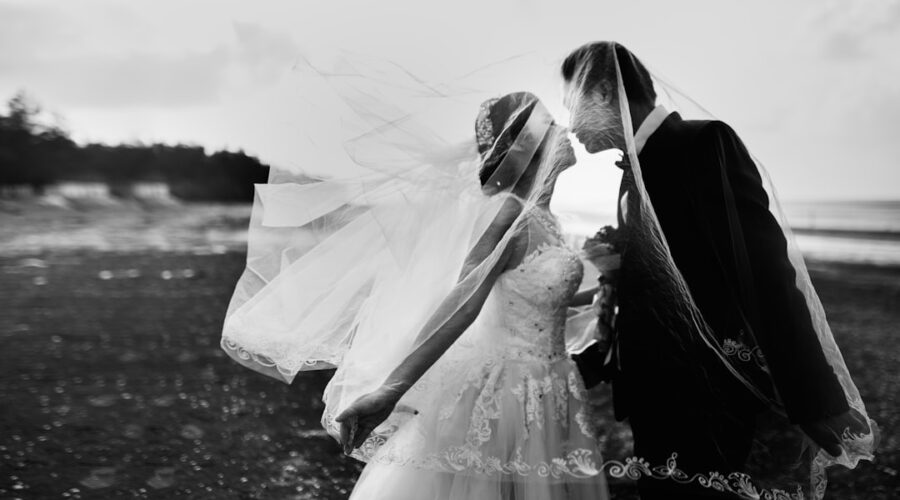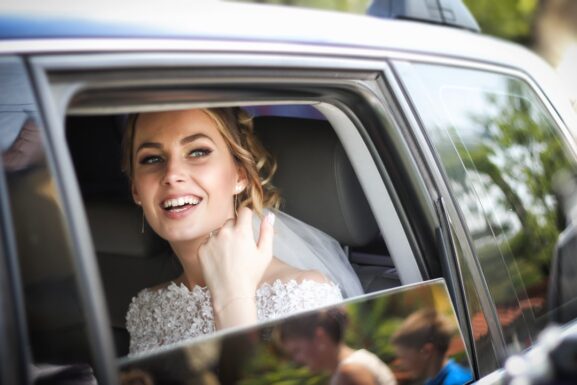Your Ultimate Wedding Planning Checklist: Stay Organized Every Step of the Way
Setting a budget is the initial and most critical step in wedding planning. Couples should discuss and determine their spending limit for the event, considering all aspects such as venue, catering, entertainment, and decorations. Once a budget is established, the next step is to research wedding agencies.
When searching for wedding agencies, it is advisable to look for those with a strong reputation and a history of successful events. Reading reviews, seeking recommendations from friends and family, and scheduling consultations with potential agencies can help in making an informed decision. It is crucial to find an agency that understands the couple’s style and can work within the set budget to create the desired wedding experience.
The process of researching wedding agencies can be time-consuming but is essential for finding the right match. Couples should look for agencies with experience in planning weddings similar to their vision, whether it’s an intimate gathering or a large-scale celebration. It is important to consider the range of services offered by each agency, such as full-service planning, day-of coordination, or customizable options.
The personality and communication style of the agency’s staff should also be taken into account, as there will be frequent interactions throughout the planning process. After narrowing down options, meeting with each agency in person can provide insight into their approach and compatibility with the couple’s vision. Selecting the right wedding agency is crucial for ensuring a smooth and stress-free planning experience.
Choosing a Date and Venue
Factors to Consider When Choosing a Date
When selecting a date for your wedding, it’s essential to consider various factors that will impact your special day. The weather, availability of key guests, and any significant dates or anniversaries that hold meaning for you and your partner should all be taken into account. Once you’ve settled on a date, you can start searching for the ideal venue.
Choosing the Right Venue for Your Wedding
When selecting a venue, consider the style and theme of your wedding, whether it’s a rustic barn, a beachfront resort, or a grand ballroom. The size of your guest list and any specific requirements, such as on-site catering or accommodations, should also be considered. It’s crucial to visit potential venues in person to get a feel for the space and ensure it aligns with your vision for the wedding.
Being Flexible and Open-Minded
When choosing a date and venue, it’s essential to be flexible and open-minded. Keep in mind that popular venues may book up quickly, especially during peak wedding season, so be prepared to consider alternative dates or locations if necessary. Logistical aspects, such as parking, accessibility for guests, and any restrictions or regulations, should also be taken into account.
Securing Your Date and Venue
Once you’ve chosen a date and venue, be sure to secure them with a deposit as soon as possible to ensure they’re reserved for your special day. Remember, choosing the right date and venue is crucial to creating the perfect setting for your wedding.
Creating a Guest List and Sending Save-the-Dates
Creating a guest list for your wedding can be a daunting task, but it’s important to start early and be organized. Begin by making a list of all the people you would like to invite, including family members, friends, and colleagues. Consider any limitations or restrictions imposed by your chosen venue, such as capacity or age restrictions, and prioritize your guest list accordingly.
Once you have finalized your guest list, it’s time to send out save-the-dates to give your guests plenty of notice about your upcoming wedding. Save-the-dates can be sent via traditional mail or electronically, depending on your preference and budget. Sending save-the-dates is an important step in the wedding planning process, as it allows your guests to mark their calendars and make any necessary arrangements to attend your special day.
When designing your save-the-dates, consider incorporating elements of your wedding theme or colors to give guests a sneak peek of what’s to come. Be sure to include all relevant information, such as the date, location, and any additional details such as hotel accommodations or transportation options. It’s also important to keep track of RSVPs as they come in to help with planning and organization as the big day approaches.
Remember, creating a guest list and sending save-the-dates are essential steps in ensuring that your loved ones can join you in celebrating your marriage.
Selecting Vendors and Creating a Timeline
Selecting vendors for your wedding is an important task that requires careful consideration and research. Start by identifying the key vendors you will need for your wedding, such as caterers, photographers, florists, and entertainment. Research potential vendors by reading reviews, asking for recommendations from friends and family, and scheduling consultations to discuss your vision for the wedding.
It’s important to find vendors who understand your style and can work within your budget to bring your vision to life. Once you have selected your vendors, be sure to secure contracts and deposits to ensure they are reserved for your special day. Creating a timeline for your wedding is essential to staying organized and on track throughout the planning process.
Start by outlining key milestones such as booking vendors, sending out invitations, and finalizing details with your venue. Break down each task into smaller steps and assign deadlines to ensure everything gets done in a timely manner. It’s also important to communicate with your vendors and keep them informed of any changes or updates to the timeline as the big day approaches.
Remember, selecting vendors and creating a timeline are crucial steps in ensuring that everything comes together seamlessly on your wedding day.
Designing Invitations and Planning the Ceremony
Designing invitations for your wedding is an exciting opportunity to showcase your style and set the tone for your special day. Consider elements such as color scheme, typography, and imagery that reflect the theme of your wedding. Whether you choose traditional paper invitations or opt for digital designs, be sure to include all relevant information such as the date, time, location, and RSVP details.
It’s also important to consider any additional inserts such as accommodation information or directions to the venue to help guests prepare for the celebration. Planning the ceremony is an important aspect of the wedding planning process that requires careful thought and consideration. Start by discussing with your partner any religious or cultural traditions you would like to incorporate into the ceremony.
Consider elements such as readings, music selections, and any special rituals that hold meaning for you as a couple. It’s also important to work closely with your officiant or celebrant to ensure that the ceremony reflects your values and beliefs. Once you have outlined the key elements of the ceremony, be sure to communicate with any vendors or participants involved to ensure everything runs smoothly on the big day.
Remember, designing invitations and planning the ceremony are essential steps in creating a meaningful and memorable wedding experience.
Organizing Transportation and Accommodations for Guests
Logistics of Guest Transportation
Start by considering the logistics of getting guests to and from the venue, especially if it is located in a remote or unfamiliar area. Whether you choose to provide shuttle services or simply offer recommendations for local transportation options, be sure to communicate these details clearly with your guests in advance.
Accommodations for Out-of-Town Guests
It’s also important to consider accommodations for out-of-town guests, whether it’s reserving room blocks at nearby hotels or providing alternative options such as vacation rentals or bed-and-breakfasts. When organizing transportation and accommodations for guests, it’s important to consider their comfort and convenience throughout the celebration.
Clear Communication and Planning
Be sure to provide clear instructions and contact information for any transportation services or accommodations you recommend so that guests can make arrangements with ease. It’s also important to keep track of RSVPs and communicate with vendors or venues about any specific requirements or arrangements needed for transportation or accommodations.
Finalizing Details and Enjoying Your Big Day
As the big day approaches, it’s important to finalize all remaining details to ensure everything runs smoothly on your wedding day. This includes confirming arrangements with vendors, communicating any last-minute changes with participants or guests, and creating a detailed timeline for the day’s events. Be sure to delegate tasks to trusted friends or family members who can help with any final preparations so that you can focus on enjoying this special time with your partner.
Finally, remember to take time to savor every moment of your big day and celebrate this joyous occasion with loved ones. Whether it’s sharing a quiet moment with your partner before the ceremony or taking time to dance and mingle with guests during the reception, be sure to soak in all the love and happiness surrounding you. Trust that all the hard work and planning has led up to this beautiful moment where you can finally say “I do” surrounded by those who mean the most to you.
In conclusion, planning a wedding is an exciting journey that requires careful consideration and organization every step of the way. From setting a budget and researching wedding agencies to finalizing details and enjoying your big day, each aspect of the planning process plays a crucial role in creating a memorable celebration of love and commitment. By taking the time to carefully plan each element of your wedding, you can ensure that everything comes together seamlessly so that you can focus on celebrating this joyous occasion with those who mean the most to you.
If you’re feeling nervous about your upcoming wedding, you’re not alone. Many couples experience pre-wedding jitters, and it’s important to address these feelings in a healthy way. This article offers some helpful tips for managing wedding day nerves and ensuring that you can fully enjoy your special day. From practicing mindfulness techniques to seeking support from loved ones, there are plenty of strategies to help calm your nerves and focus on the joy of your wedding day.
FAQs
What is a wedding planning checklist?
A wedding planning checklist is a detailed list of tasks and to-dos that need to be completed in order to plan a wedding. It helps couples stay organized and on track throughout the wedding planning process.
Why is a wedding planning checklist important?
A wedding planning checklist is important because it helps couples stay organized, keep track of important tasks, and ensure that nothing is overlooked during the wedding planning process. It can help reduce stress and make the planning process more manageable.
What should be included in a wedding planning checklist?
A wedding planning checklist should include tasks such as setting a budget, creating a guest list, choosing a venue, selecting vendors, and planning the ceremony and reception details. It should also include deadlines for each task and reminders for important appointments and payments.
When should a couple start using a wedding planning checklist?
Couples should start using a wedding planning checklist as soon as they become engaged and begin the wedding planning process. It can help them stay organized from the beginning and ensure that they have enough time to complete all necessary tasks before the wedding day.
Where can couples find a wedding planning checklist?
Couples can find wedding planning checklists online, in wedding planning books, or through wedding planning apps. Many wedding websites also offer customizable wedding planning checklists that can be tailored to fit the couple’s specific needs and timeline.



